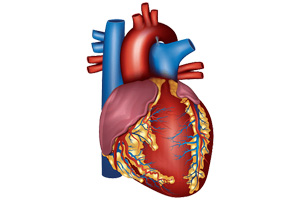
Heart failure happens when the heart cannot pump enough blood and oxygen to support other organs in your body. Heart failure is a serious condition, but it does not mean that the heart has stopped beating. Although it can be a severe disease, heart failure is not a death sentence, and treatment is now better than ever.
When this happens, blood and fluid may back up into the lungs (congestive heart failure), and some parts of the body don’t get enough oxygen-rich blood to work normally. These problems lead to the symptoms of heart failure.
Heart failure is a condition where the heart is unable to pump enough blood to meet the body’s requirement and enough oxygen is not reaching the ends. Uday Hospital has one of the best and experienced cardiologists in Guntur provides the best treatment for heart failure with our heart specialist in Guntur.
Heart failure develops because the heart muscle becomes weak or loses the ability to pump normally. The Ejection Fraction (EF) is a percent that lets us know how the heart is squeezing (normal is 55-70%). If the heart isn’t "squeezing" well to get enough blood to your body, you have heart failure with a reduced ejection fraction (EF < 40%). If the heart can't "relax" to fill with enough blood between contractions, you have heart failure with preserved ejection fraction (EF > 50%). Heart muscle weakening and damage is often called cardiomyopathy, which literally means "heart muscle disease."
Heart failure interferes with the kidney's normal function of eliminating excess sodium and waste products from the body. In congestive heart failure, the body retains more fluid, yet not all heart failure patients retain fluid. Here are the symptoms of heart failure:
Heart failure is most often caused by other conditions, such as atherosclerosis or Coronary Artery Disease (CAD), heart attack, high blood pressure, heart valve problems, your genetics, and alcohol or drug abuse. Sometimes the damage occurs for no known reason. This is called idiopathic cardiomyopathy (idiopathic means "no known cause") and many with this find that heart failure runs in their family.
Health conditions that left unrecognized or untreated will increase the lifetime risk of developing heart failure. Some of these diseases include:
Unhealthy behaviors can also increase your risk for heart failure, especially for people who have one of the diseases listed above. Unhealthy behaviors include:
Early diagnosis and treatment can improve quality and length of life for people who have heart failure. Treatment usually involves taking medications, getting daily physical activity, and reducing the salt or sodium you eat in your diet. People with heart failure need to track their weight and symptoms each day so that they can discuss these symptoms with their health care team.
The newer combination drug called Sacubitril-valsartan (called an ARNI, ARB with a Neprilysin Inhibitor) has been studied and shown to have improved outcomes in patients with a weak heart muscle when it replaces medications like lisinopril (an ACE Inhibitors) or losartan (an ARB, or Angiotensin Receptor Blocker). Anther medication usually known to treat patients with diabetes, known as Dapagliflozin (a Gliflozin), has been shown to improve outcomes in patients with a heart muscle, even without diabetes when used in combination with other medications. For patients with a heart muscle with reduced ejection fraction (EF< 40%), Quadruple therapy is the recommended:
